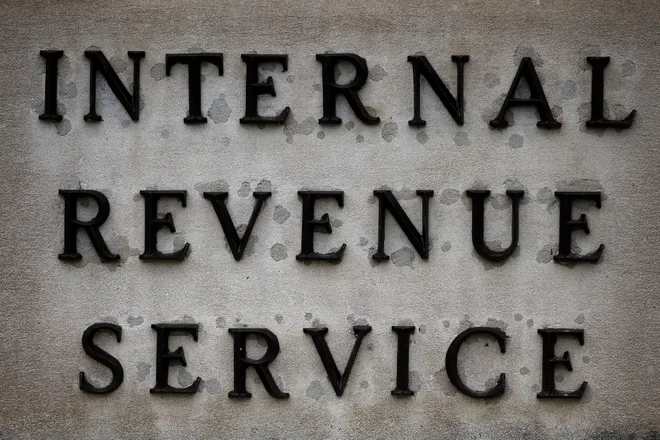It's time to do your taxes. No, really. The final 2022 tax year deadline is Oct. 16.
Time’s up for millions of Americans: The final deadline to file your 2022 taxes is approaching quickly.
Millions of people file every year for an automatic tax-filing extension beyond the original April deadline. By mid-May, more than 142 million taxpayers had filed returns, according to the IRS. But the agency expected about 168 million returns, which means more than 25 million taxpayers were waiting beyond the April 18 deadline to file.
Now, there's no more procrastinating. The final deadline to file your tax return is Monday, October 16. If you don’t meet it, expect to start accumulating hefty penalties. The late-filing penalty “can be 10 times as costly as the penalty for not paying,” the IRS said.
How much are IRS penalties if I miss the October 16 deadline?
The failure-to-file penalty depends on how late your filing is and how much you owe, and the clock started on the original due date of April 18, not the Oct. 16 extension deadline. Interest is also charged on penalties, meaning your balance will continue to balloon until it’s paid in full.
The interest rate for an individual's unpaid taxes is 7%, compounded daily. The monthly late-filing penalty is generally 5% and the late-payment penalty is normally 0.5%. Both max out at 25%, the IRS said.
Even if you owe money you can’t pay, file anyway. “The worst thing to do is not to file,” said Phil Drudy, managing director and head of tax at CBIZ MHM’s New York Tax Department.
What if I can’t pay my tax bill?
“If you owe money, file your return and then go start the process of working out a plan. There are several legitimate ways to pay off your debt,” Drudy said.
Most people can set up a payment plan on IRS.gov to pay off their balance over time. Some may opt to get a loan or pay by credit card to resolve a tax debt, the IRS said.
If you owe both federal and state taxes, try to pay off your state tax debt first.
“States, for the most part, don’t have as robust plans and mechanisms to pay over time, and they can become very aggressive, depending on the state,” Drudy said. “Some states have private collection agencies you’ll have to deal with if you don’t pay your taxes.”
State penalties for late filings and payments are also generally higher than IRS ones, he added.

What about my FTX holdings?
After the government filed criminal charges against FTX founder Sam Bankman-Fried and some fellow executives when the company imploded, more than a million taxpayers were in limbo last spring, not knowing if they could use the IRS theft loss rule. That rule allows you to claim the loss as an itemized deduction if the theft was considered illegal in the state where it occurred and it was done with criminal intent.
Some may have even filed for a tax extension, hoping for clarification from the IRS on how to handle potential crypto losses from the scandal.
But “nothing has changed with FTX,” Drudy said. “We’re still in limbo.” Bankman-Fried's trial has only recently begun, so a resolution won’t come in time, he said.
The way Drudy sees it, taxpayers have three choices:
- If you have gains you want to use your crypto losses against, work with tax and financial advisors to determine if you can pinpoint a time in 2022 when your holdings could be declared worthless.
- If you want to “abandon” your holding, you can send your crypto to a null address and take a loss. However, it’s too late to do this for your 2022 taxes. It’ll count against your 2023 tax year gains.
- Do nothing and continue waiting for IRS guidance. “I wouldn’t look to abandon unless I knew for a fact it had no value,” Drudy said.
What happens if you're late paying:Delaying on taxes? Here's what happens if you don't pay on time.
Are there any exceptions to the Oct. 16 deadline?
Those with an address on record with the IRS covered by Federal Emergency Management Agency disaster declarations and those returning from a combat zone may have additional time to file.
They include:
- Taxpayers affected by flooding in Illinois and Alaska have until Oct. 31 to file.
- Those affected by flooding in Vermont have until Nov. 15 to file.
- Taxpayers affected by recent natural disasters, including those impacted by the recent Maui fires and hurricane Idalia in parts of Florida, South Carolina and Georgia. Those people have until Feb. 24 to file various individual and business tax returns. Taxpayers potentially affected by recent storms should visit the disaster relief page on IRS.gov for the latest information.
- Members of the military and others serving in a combat zone typically have 180 days after they leave the combat zone to file returns and pay any taxes due.
Bottom line
If your taxes are due, file no matter what.
Even if you’re unsure about all the line items, "you can include a statement to say the filing is to the best of your knowledge and you will adjust the filing, if necessary,” Drudy said. “What matters if they ever come and you get audited, you can say I acted in good faith" and have a better chance for reduced penalties.
Medora Lee is a money, markets, and personal finance reporter at USA TODAY. You can reach her at mjlee@usatoday.com and subscribe to our free Daily Money newsletter for personal finance tips and business news every Monday through Friday morning.
Disclaimer: The copyright of this article belongs to the original author. Reposting this article is solely for the purpose of information dissemination and does not constitute any investment advice. If there is any infringement, please contact us immediately. We will make corrections or deletions as necessary. Thank you.







